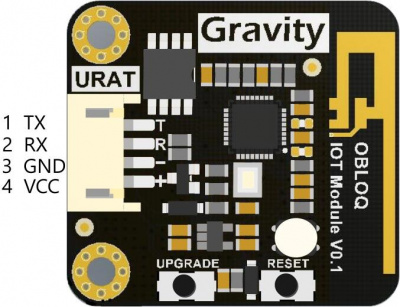Gravity: UART OBLOQ – IoT Module
SKU: TEL0118
Gravity: UART OBLOQ (ESP8266 WiFi to Serial) Module is a WiFi-to-Serial device for non-professional developers and makers. It supports standard MQTT IoT services (e.g., Microsoft Azure IoT), enabling quick IoT app building without complex IoT knowledge. Based on ESP8266, it features compact size, low cost, simple interface, plug-and-play, and stable operation under 3.3V~5V.


